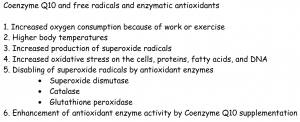 Oxygen is a strange element in our lives. We cannot live without it. We use it to burn nutrients to generate ATP energy in the cells. So far, so good.
Oxygen is a strange element in our lives. We cannot live without it. We use it to burn nutrients to generate ATP energy in the cells. So far, so good.
But, in the process of producing energy from nutrients – the process is called cellular respiration – some small portion of the oxygen produces a by-product: free radicals. These radicals are atoms or molecules with one or more unpaired electrons in the outer orbit. There are many types of radicals; the radicals derived from oxygen – known as reactive oxygen species – are some of the most toxic radicals.
In moderate quantities, these free radicals have some useful inter-cellular and intra-cellular signaling functions. Moreover, the immune system’s phagocytic cells use radicals to kill pathogens. However, in large quantities, the highly reactive radicals that escape the respiratory chain of the mitochondria can be toxic to the cells. They can damage DNA, RNA, proteins and fatty acids in the blood and tissue.
In fact, the definition of oxidative stress is an imbalance between the quantities of potentially harmful free radicals and the quantities of antioxidants available to neutralize the free radicals before they can set off damaging chain reactions. The process of lipid peroxidation is one of the most common examples of toxic activity by oxygen-derived radicals; the radicals target the fatty acids in the phospholipid cellular membranes, i.e. the plasma membranes of the cells and the mitochondrial membranes. The antioxidant enzymes are important for the prevention of lipid peroxidation.
Coenzyme Q10 has an antioxidant role
In its reduced form, Coenzyme Q10, both the Coenzyme Q10 that the body synthesizes and the Coenzyme Q10 that we ingest from supplements, is an important fat-soluble antioxidant.
Let me explain that: Coenzyme Q10 molecules are redox molecules. The oxidized form of Coenzyme Q10 is called ubiquinone. It is the form that can accept (gain) electrons from other molecules. The reduced form of Coenzyme Q10 is called ubiquinol. It is the form that can donate (lose) electrons to free radical molecules that are thus neutralized by gaining the one or two electrons.
The redox pair – ubiquinone and ubiquinol – convert back and forward multiple times in the body. But I want to save Coenzyme Q10’s antioxidant role for another day. Today, I want to discuss Coenzyme Q10’s role in strengthening the activity of enzymatic antioxidants.
Coenzyme Q10’s role in antioxidant defense
Two questions come to mind when we talk about Coenzyme Q10 and free radicals and antioxidants.
- What are some of the most important antioxidant enzymes that protect our DNA and our cells?
- How does Coenzyme Q10 supplementation affect the activity of these important antioxidant enzymes?
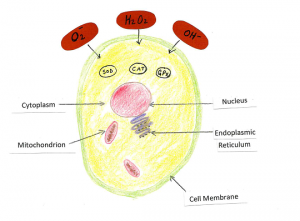
Radicals — superoxide radicals, hydroxyl radicals, hydrogen peroxide radicals, singlet oxygen radicals — damage the plasma membrane and the cytoplasm of the cells as well as damage the mitochondria. Coenzyme Q10 and antioxidant enzymes — superoxide dismutase, catalase, and glutathione peroxidase — de-toxify the harmful radicals.
Crucial antioxidant enzymes
Superoxide dismutase
Superoxide radicals are a by-product of the cells’ metabolism of oxygen. Left unchecked, the superoxides can be very harmful to cells and DNA. The superoxide dismutase enzymes – found in the cytoplasm, in the mitochondria, and outside the cells – are crucial antioxidants that catalyze the disarming of the superoxide radicals. Superoxide dismutase enzymes catalyze the decomposition of superoxide radicals to hydrogen peroxide and oxygen.
Catalase
Catalase enzymes are very important enzymes for the protection of the cells from oxidative damage. Catalase enzymes catalyze the breaking down of hydrogen peroxide molecules to water and oxygen. In this way, the catalase enzymes complete the detoxification of the superoxide radicals that was started by the superoxide dismutase enzymes.
Glutathione peroxidase
Glutathione peroxidase enzymes belong to a group of enzymes that contain selenium as an important component. Like catalase, the glutathione peroxidase enzymes also catalyze the breaking down of hydrogen peroxide. Furthermore, the glutathione peroxide enzymes reduce organic peroxide radicals to alcohols, thus eliminating toxic free radicals.
Quick summary of oxygen-derived radicals and antioxidants
- Superoxide dismutase breaks down superoxide radicals to hydrogen peroxide and water.
- Catalase and glutathione peroxidase break down hydrogen peroxide to water and oxygen.
- These processes are important because the hydrogen peroxide can be converted to highly damaging hydroxyl radicals that can and will damage DNA, lipids, and proteins.
Effect of Coenzyme Q10 supplementation on antioxidant enzymes
Dr. Liu and a team of researchers [2016] have shown that daily supplementation of liver cancer patients after surgery with 300 milligrams of Coenzyme Q10 is significantly negatively associated with markers of oxidative stress and significantly positively associated with the antioxidant enzyme activity of superoxide dismutase, catalase, and glutathione peroxidase.
Dr. Nadjarzadeh and colleagues [2014] have shown that 200 milligrams of Coenzyme Q10 daily is associated with improved superoxide dismutase and catalase enzyme activity and with improved semen parameters in infertile men patients.
Dr. Sanoobar and colleagues [2013] have shown that daily supplementation with 500 milligrams of Coenzyme Q10 is associated with significantly increased superoxide dismutase activity and with decreased oxidative stress in patients with relapsing-remitting multiple sclerosis.
Dr. Lee and colleagues [2013] have shown that the activity levels of the antioxidant enzymes superoxide dismutase, catalase, and glutathione peroxidase were significantly higher and the levels of inflammatory marker were significantly lower following daily Coenzyme Q10 supplementation of coronary artery disease patients on statin medications. The supplementation level was 300 milligrams daily.
Dr. Lee and a team of researchers [2012] have shown that daily supplementation with 150 milligrams of Coenzyme Q10 is associated with significant increases in the activity of the antioxidant enzymes superoxide dismutase and catalase and with decreased oxidative stress in coronary artery disease patients.
Dr. Tiano and colleagues in a research group led by Professor Gain Paolo Littarru [2007] have shown that daily supplementation with 100 milligrams of Coenzyme Q10 improves superoxide dismutase activity and improves endothelium-dependent blood vessel dilation in patients with coronary artery disease.
Dr. Kalpravidh and colleagues [2005] have shown that daily supplementation of thalassemia patients with 100 milligrams of Coenzyme Q10 as an adjunct therapy significantly increased the activity of the antioxidant enzymes superoxide dismutase, catalase, and glutathione peroxidase, decreased levels of oxidative stress, and improved the patients’ quality of life.
Conclusion
The three groups of antioxidant enzymes – superoxide dismutase, catalase, and glutathione peroxidase – are important for protecting the cells against oxidative damage. Cumulative oxidative damage may be linked to the development of degenerative diseases and to ageing.
The results of the randomized controlled studies summarized above show that Coenzyme Q10 supplementation is significantly associated with improved antioxidant enzyme activity and with decreased oxidative stress markers.
In addition to the enzymatic antioxidants, there are other non-enzymatic antioxidants that are important and that have a relationship with Coenzyme Q10:
- Vitamin C
- Vitamin E
- Glutathione (not to be confused with glutathione peroxidase)
Moreover, there are various flavonoids and carotenoids that can act as antioxidants. I will want to write about Coenzyme Q10 and non-enzymatic antioxidants in a separate article.
Selenium in the glutathione peroxidase and the thioredoxin reductase enzymes also deserves more attention that I have given it in this article. Think, for example, of the beneficial health effects of supplementation with a combination of selenium and Coenzyme Q10 in the KiSel-10 study [Alehagen].
Sources
Alehagen, U., Johansson, P., Björnstedt, M., Rosén, A., & Dahlström, U. (2013). Cardiovascular mortality and N-terminal-proBNP reduced after combined selenium and coenzyme Q10 supplementation: a 5-year prospective randomized double-blind placebo-controlled trial among elderly Swedish citizens. International Journal of Cardiology, 167(5), 1860-1866.
Kalpravidh, R. W., Wichit, A., Siritanaratkul, N., & Fucharoen, S. (2005). Effect of coenzyme Q10 as an antioxidant in beta-thalassemia/Hb E patients. Biofactors (Oxford, England), 25(1-4), 225-234.
Lee, B., Tseng, Y., Yen, C., & Lin, P. (2013). Effects of coenzyme Q10 supplementation (300 mg/day) on antioxidation and anti-inflammation in coronary artery disease patients during statins therapy: a randomized, placebo-controlled trial. Nutrition Journal, 12(1), 142. doi:10.1186/1475-2891-12-142
Lee, B., Huang, Y., Chen, S., & Lin, P. (2012). Coenzyme Q10 supplementation reduces oxidative stress and increases antioxidant enzyme activity in patients with coronary artery disease. Nutrition (Burbank, Los Angeles County, Calif.), 28(3), 250-255. doi:10.1016/j.nut.2011.06.004
Liu, H., Huang, Y., Cheng, S., Huang, Y., & Lin, P. (2016). Effects of coenzyme Q10 supplementation on antioxidant capacity and inflammation in hepatocellular carcinoma patients after surgery: a randomized, placebo-controlled trial. Nutrition Journal, 15(1), 85.
Nadjarzadeh, A., Shidfar, F., Amirjannati, N., Vafa, M. R., Motevalian, S. A., Gohari, M. R., & … Sadeghi, M. R. (2014). Effect of Coenzyme Q10 supplementation on antioxidant enzymes activity and oxidative stress of seminal plasma: a double-blind randomised clinical trial. Andrologia, 46(2), 177-183. doi:10.1111/and.12062
Sanoobar, M., Eghtesadi, S., Azimi, A., Khalili, M., Jazayeri, S., & Reza Gohari, M. (2013). Coenzyme Q10 supplementation reduces oxidative stress and increases antioxidant enzyme activity in patients with relapsing-remitting multiple sclerosis. The International Journal of Neuroscience, 123(11), 776-782. doi:10.3109/00207454.2013.801844
Tiano, L., Belardinelli, R., Carnevali, P., Principi, F., Seddaiu, G., & Littarru, G. P. (2007). Effect of coenzyme Q10 administration on endothelial function and extracellular superoxide dismutase in patients with ischaemic heart disease: a double-blind, randomized controlled study. European Heart Journal, 28(18), 2249-2255.
The information presented in this review article is not intended as medical advice and should not be construed as such.


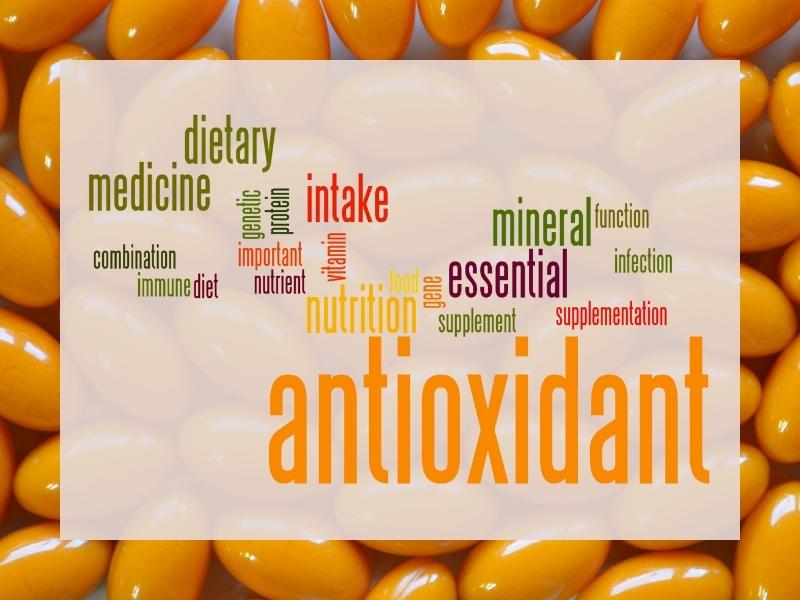
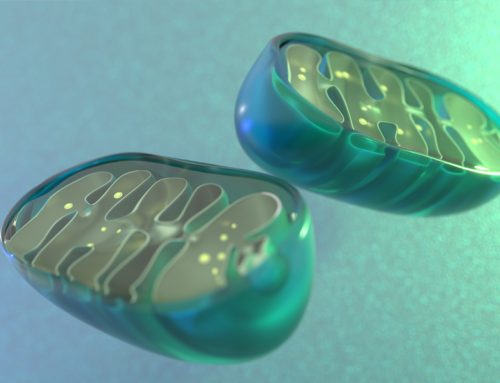

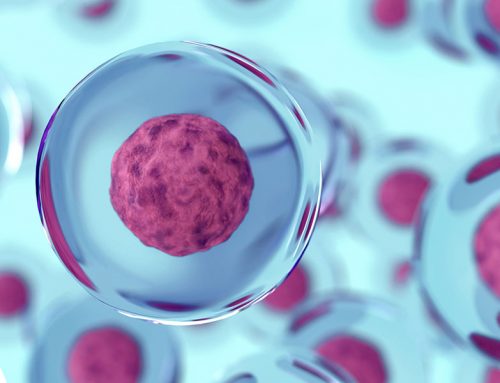
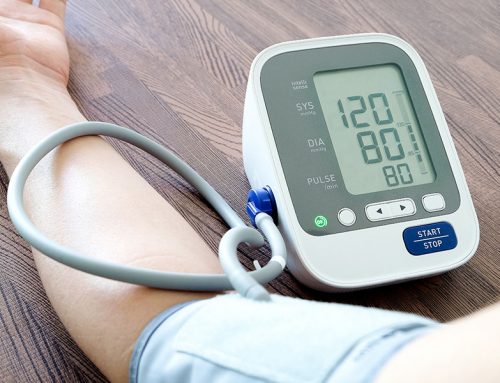


[…] more important if, as in the case of extensive lipid peroxidation, the protective action of the enzymatic antioxidants superoxide dismutase, glutathione peroxidase, and catalase is […]
[…] with significantly with the increased activity of these three endogenous antioxidant enzymes. Please click here to see my summaries of the relevant clinical […]